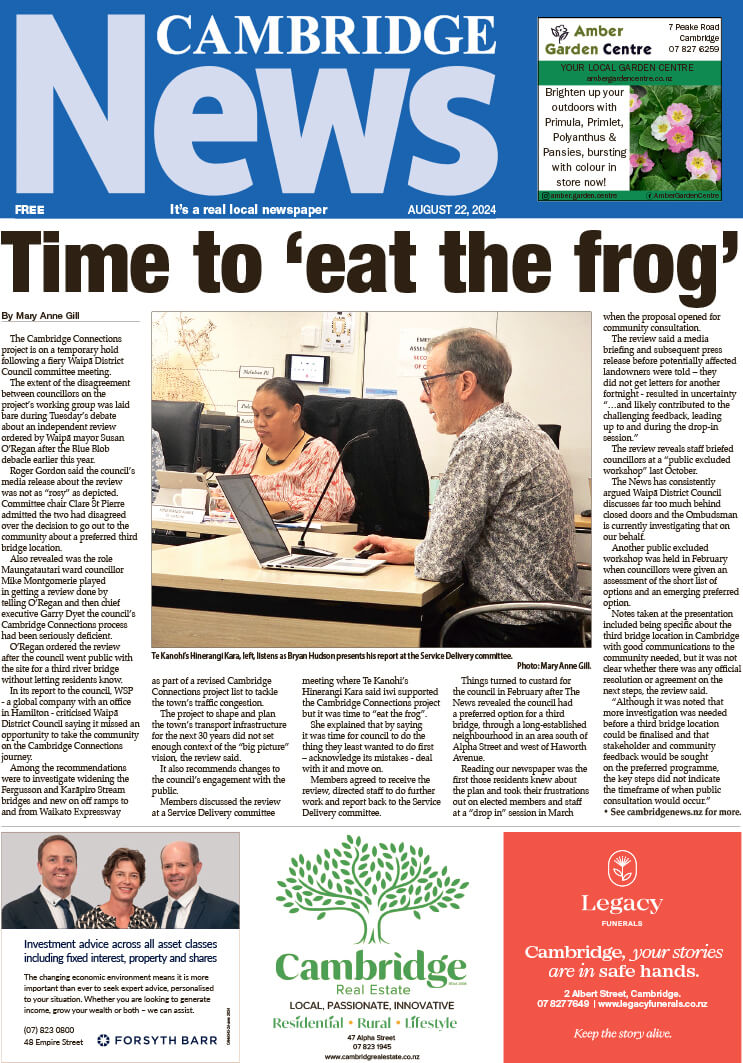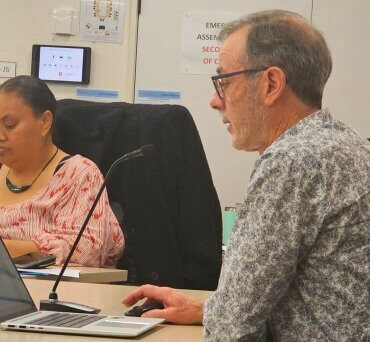
Hinerangi Kara, left, and Bryan Hudson.
The Cambridge Connections project is on a temporary hold following a fiery Waipā District Council committee meeting.
The extent of the disagreement between councillors on the project’s working group was laid bare during Tuesday’s debate about an independent review ordered by Waipā mayor Susan O’Regan after the Blue Blob debacle earlier this year.
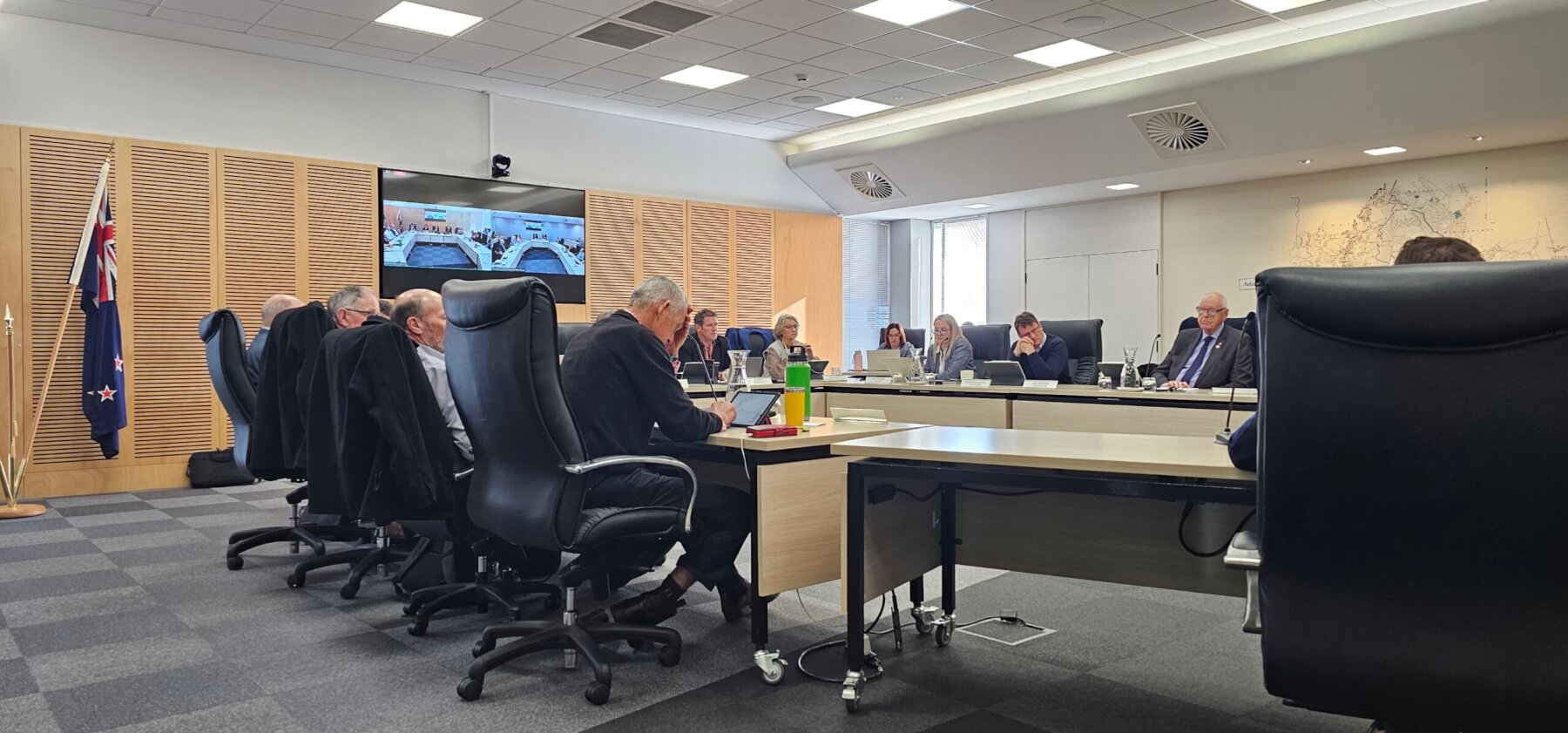
The Service Delivery committee meets earlier this week to discuss a Cambridge Connections review. Photo: Mary Anne Gill.
Roger Gordon said the council’s media release about the review was not as “rosy” as depicted. Committee chair Clare St Pierre admitted the two had disagreed over the decision to go out to the community about a preferred third bridge location.
Also revealed was the role Maungatautari ward councillor Mike Montgomerie played in getting a review done by telling O’Regan and then chief executive Garry Dyet the council’s Cambridge Connections process had been seriously deficient.
O’Regan ordered the review after the council went public with the site for a third river bridge without letting residents know.
In its report to the council, WSP – a global company with an office in Hamilton – criticised Waipā District Council saying it missed an opportunity to take the community on the Cambridge Connections journey.
Among the recommendations were to investigate widening the Fergusson and Karāpiro Stream bridges and new on off ramps to and from Waikato Expressway as part of a revised Cambridge Connections project list to tackle the town’s traffic congestion.
The project to shape and plan the town’s transport infrastructure for the next 30 years did not set enough context of the “big picture” vision, the review said.
It also recommends changes to the council’s engagement with the public.
Members discussed the review at a Service Delivery committee meeting where Te Kanohi’s Hinerangi Kara said iwi supported the Cambridge Connections project but it was time to “eat the frog”.
She explained that by saying it was time for council to do the thing they least wanted to do first – acknowledge its mistakes – deal with it and move on.
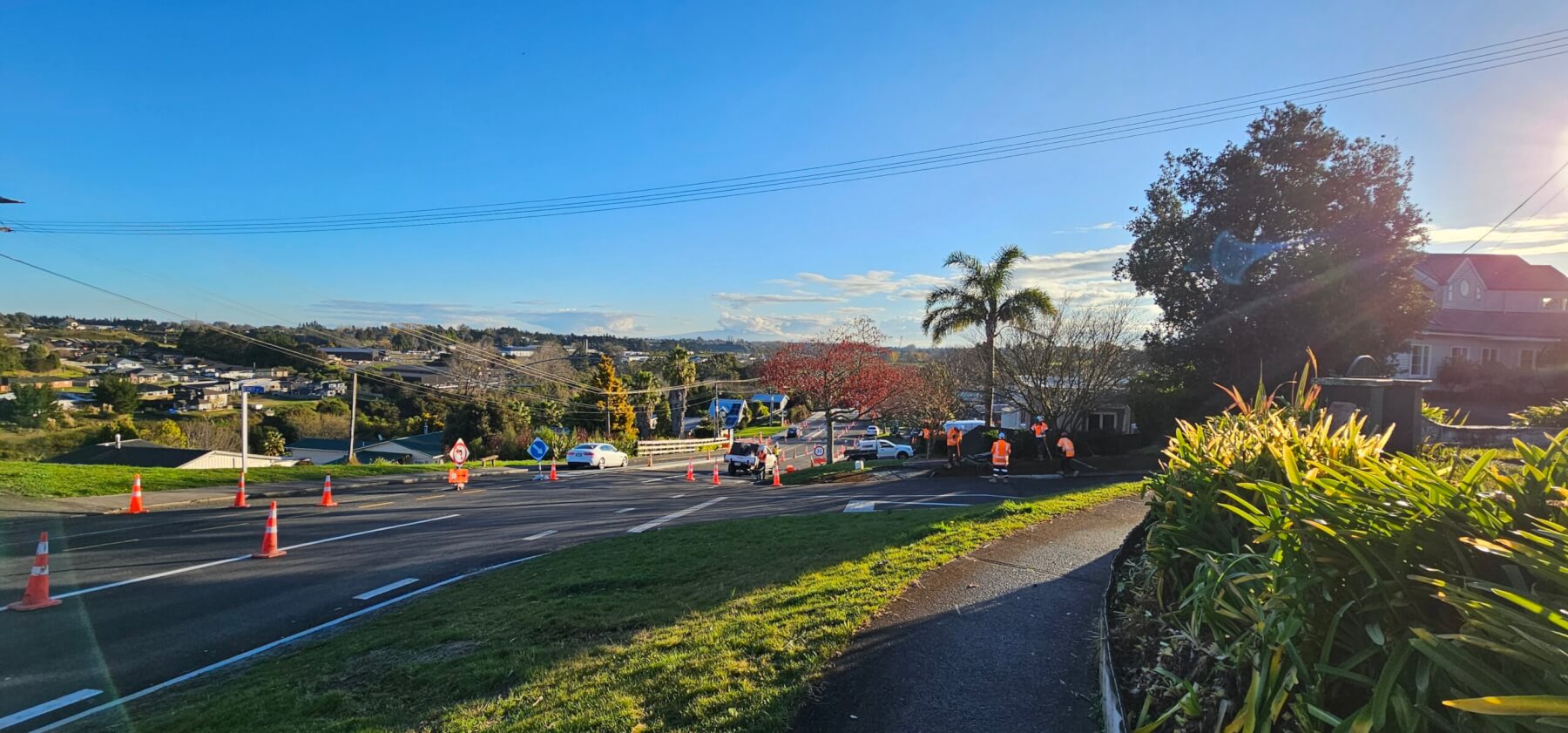
Work being undertaken on Cambridge Connections cycleway at lower Alpha Street – the site of the now discounted Blue Blob river location. Photo: Mary Anne Gill.
Members agreed to receive the review, directed staff to do further work and report back to the Service Delivery committee.
Things turned to custard for the council in February after The News revealed the council had a preferred option for a third bridge, through a long-established neighbourhood in an area south of Alpha Street and west of Haworth Avenue.
Reading our newspaper was the first those residents knew about the plan and took their frustrations out on elected members and staff at a “drop in” session in March when the proposal opened for community consultation.
The review said a media briefing and subsequent press release before potentially affected landowners were told – they did not get letters for another fortnight – resulted in uncertainty “…and likely contributed to the challenging feedback, leading up to and during the drop-in session.”
Cambridge Community Board chair Jo Davies-Colley took the lead allowing residents to talk at the board’s open forum before the drop-in session.
The review reveals staff briefed councillors at a “public excluded workshop” last October.
“This presentation highlighted the need to include a holistic response to options, such as integrated planning interventions, and not just infrastructure solutions. In addition, there was a decision to consult the community on the preferred option only,” the review said.
The News has consistently argued Waipā District Council discusses far too much behind closed doors and the Ombudsman is currently investigating that on our behalf.
Another public excluded workshop was held in February when councillors were given an assessment of the short list of options and an emerging preferred option.
Notes taken at the presentation included being specific about the third bridge location in Cambridge with good communications to the community needed, but it was not clear whether there was any official resolution or agreement on the next steps, the review said.
“Although it was noted that more investigation was needed before a third bridge location could be finalised and that stakeholder and community feedback would be sought on the preferred programme, the key steps did not indicate the timeframe of when public consultation would occur.”
See: Drop in session a disaster
See: Council called the crisis team
See: Making connections
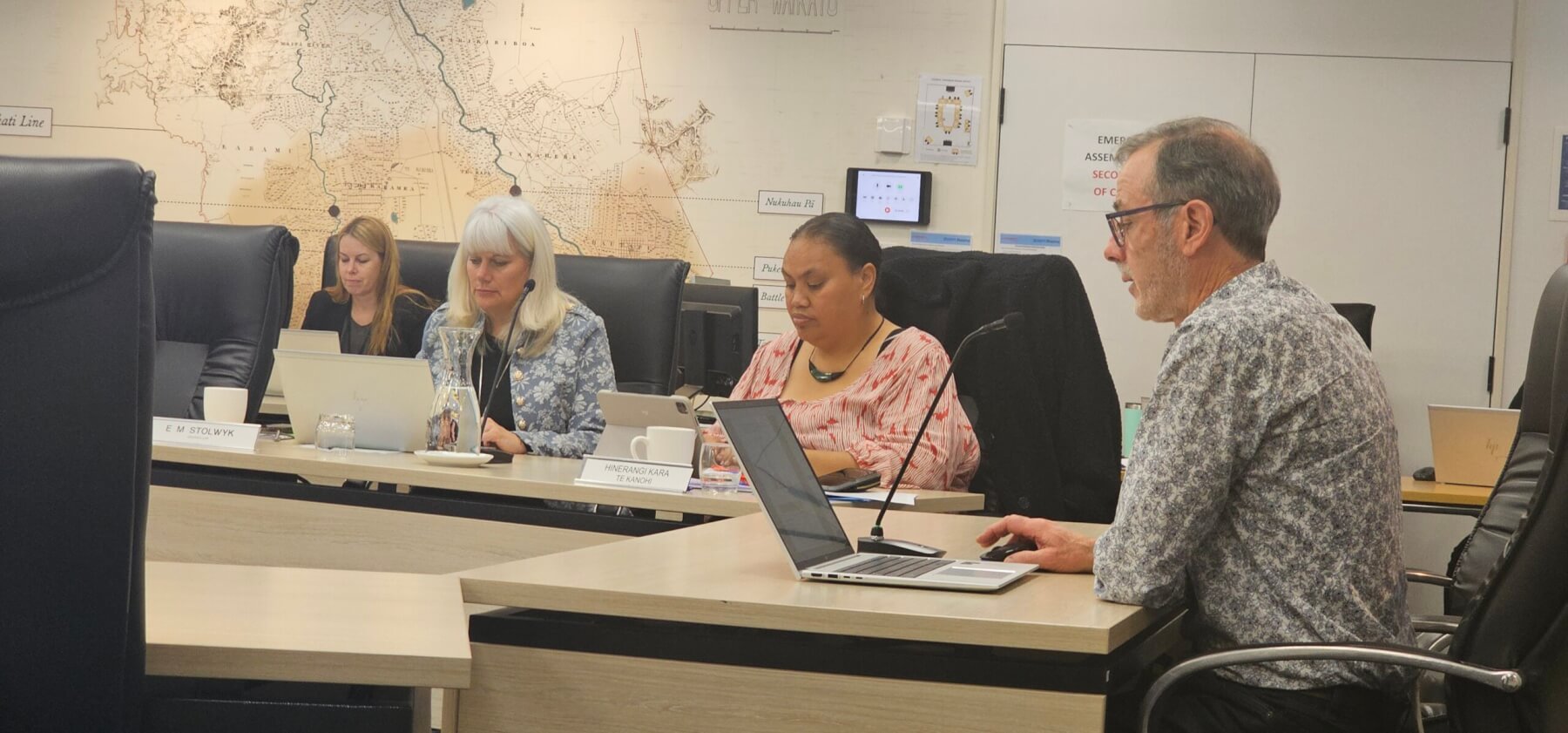
Te Kanohi’s Hinerangi Kara, centre, listens as Bryan Hudson presents his report at the Service Delivery committee. Photo: Mary Anne Gill.



